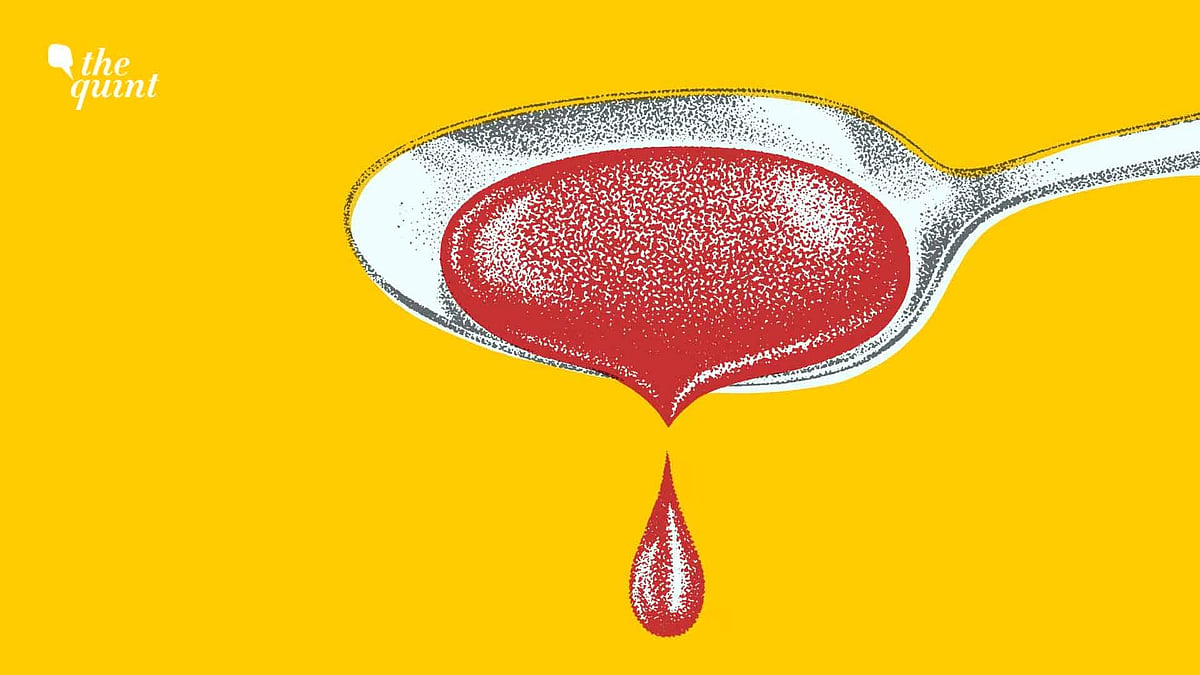
Cough Syrup Deaths: When the System Fails, Doctors Are Blamed
In the cough syrup deaths, the manufacturer faced action much after the doctor’s arrest, writes Dr Ashwini Setya.

advertisement
Every time a tragedy strikes India’s public healthcare system, a familiar pattern almost predictable to a T, unfolds: outrage, media frenzy, and the swift arrest of a doctor. The deeper malaise—poor infrastructure, political negligence, and administrative collapse—are rarely investigated with equal urgency, if at all.
The most recent case, in an almost endless list of such examples, is the arrest of Dr Soni, accused of prescribing a particular brand of cough syrup which eventually was found to be the cause of tragic death of 17 children in Chhindwara, Madhya Pradesh. He was sent to judicial custody.
The court also felt that he has not adhered to the advisory issued by the Directorate General of Health Services (DGHS) in 2023 of not using the fixed dose combinations (FDCs).
A Disturbing Pattern of Blame
The problem is that such treatment is meted out to doctors with sickening regularity.
The 2014 sterilisation camp tragedy in Chhattisgarh, where several women died after sterilisation operation, is still fresh in people’s mind. Dr RK Gupta, the operating surgeon, was sent to jail after the mainstream media bayed for his blood, calling him a marauder and ‘maut ka saudagar’.
A logical thinking dictates that a highly experienced and awarded doctor is extremely unlikely to commit the same surgical mistake in all the patients on a particular day for the same surgery; hence reason must be found elsewhere, which is a common thread.
Examples abound.
Dr Binayak Sen, a pediatrician and public health worker serving among tribal communities, was accused of sedition—not for any act of violence, but for speaking out on human rights violations.
In Patiala, when a fire broke out in the Neonatal Intensive Care Unit of a government hospital, Dr Lochan, Head of Pediatrics, was arrested even though she was on sanctioned leave, and not in the city.
When several children died in Gorakhpur due to a shortage of oxygen cylinders, Dr Kafeel Khan—who had personally rushed to arrange emergency supplies—was handcuffed and vilified. He was finally acquitted.
For that frenzied moment, each such arrest satisfies an immediate need for accountability. But the real causes of these tragedies lie elsewhere and is conveniently and wilfully forgotten until a similar tragic accident rakes it up again.
Corruption in Healthcare
In the present cough syrup case, action against the manufacturer was taken, for killing 17 innocent children, a despicable criminal offence, much after the doctor’s arrest. It is interesting to note that in one day of inspection, 364 critical and major violations of Good Manufacturing Practices have been found by the drug authorities who forgot to inspect the said unit for the previous 14 years.
Because of a pittance of a budgetary support for healthcare, the hospitals run without basic safety infrastructure. Widespread corruption allows substandard drugs and equipment to enter public supply chains.
Insensitive administration and bureaucracy don’t seem to care, even when a single oxygen supplier’s unpaid bill can endanger dozens of lives.
For India’s medical community, this pattern has been devastating, to say the least. Thousands of doctors, government and private alike, already work under immense pressure—overwhelming patient loads, inadequate staff, and crumbling infrastructure. To add the threat of arrest for failures beyond their control is deeply demoralising.
When the state turns its healers into suspects, it weakens the very institutions meant to protect the public.
No one argues that doctors should be immune to the law. Genuine negligence or unethical conduct must face due process. But criminalising professional judgement or holding doctors responsible for administrative collapse serves no one.
Medical ethics demand responsibility. But justice demands fairness. When the voices of doctors who serve the poorest are silenced or criminalised, it is society itself that loses.
A nation that punishes its doctors for its own neglect is a nation unwell in more ways than one. True reform will begin only when accountability moves upward—from the hospital ward to the corridors of power.
(Dr (Prof) Ashwini Kumar Setya, MD DM PGDMLE, is a Senior Consultant at Medanta Institute of Digestive & Hepatobiliary Sciences and Holy Family Hospital, New Delhi. This is an opinion piece and the views expressed above are the author’s own. The Quint neither endorses nor is responsible for the same.)
- Access to all paywalled content on site
- Ad-free experience across The Quint
- Early previews of our Special Projects
Published: undefined